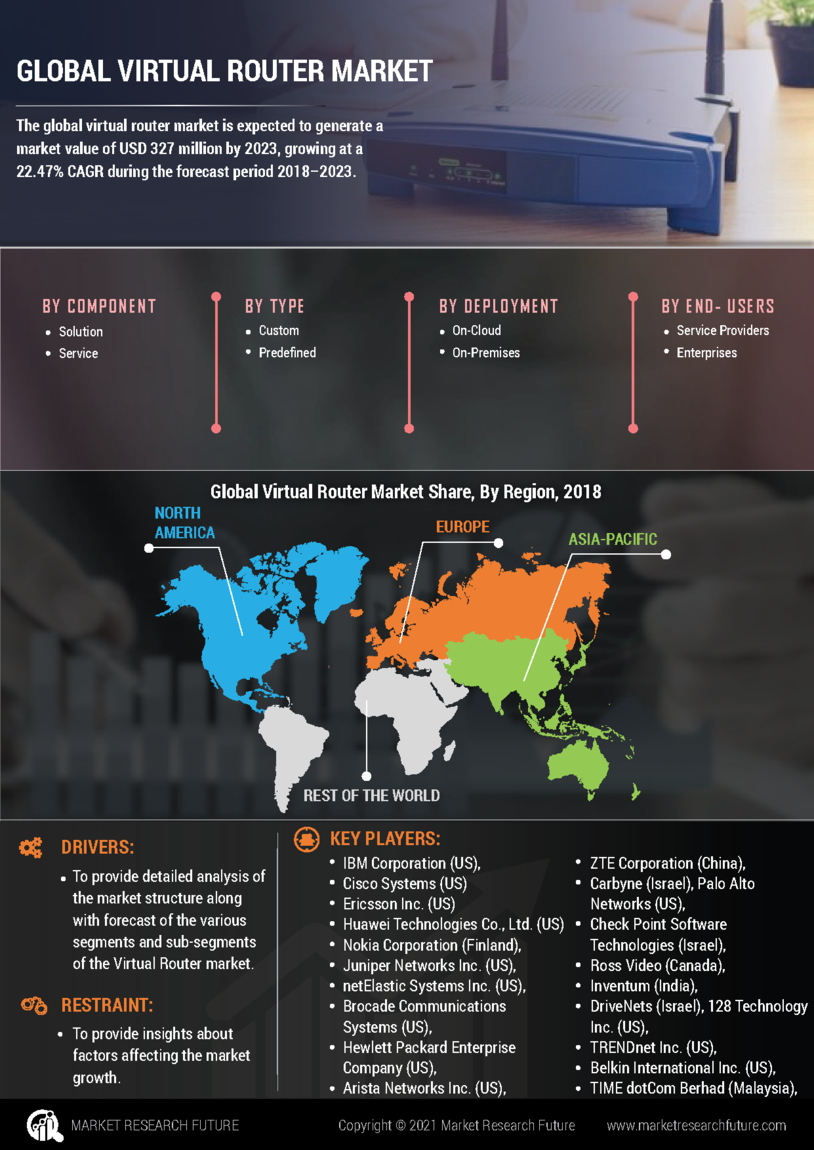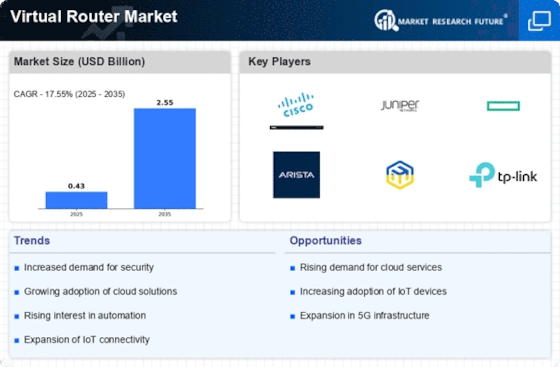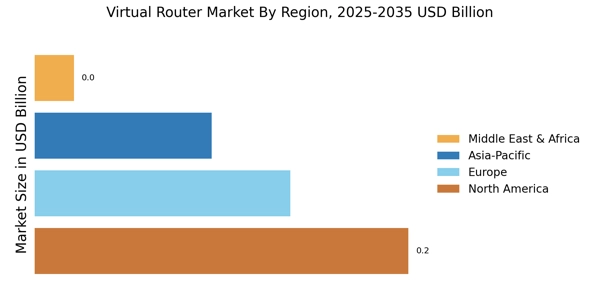Emergence of 5G Technology
The rollout of 5G technology is poised to significantly impact the Virtual Router Market. With its promise of ultra-fast data speeds and low latency, 5G is expected to transform how data is transmitted across networks. This technological advancement creates a pressing need for virtual routers that can handle the increased data traffic and provide seamless connectivity. Market analysts suggest that the adoption of 5G will lead to a substantial rise in the number of connected devices, which in turn will require sophisticated routing solutions. The Virtual Router Market must adapt to these changes by developing routers that can efficiently manage the complexities of 5G networks. As telecommunications companies invest heavily in 5G infrastructure, the demand for virtual routers capable of supporting this technology is likely to grow exponentially.
Rising Demand for High-Speed Internet
The increasing demand for high-speed internet connectivity is a primary driver of the Virtual Router Market. As more consumers and businesses seek faster and more reliable internet services, the need for advanced routing solutions becomes apparent. According to recent data, the number of broadband subscriptions has surged, with millions of new users coming online each year. This trend necessitates the deployment of virtual routers that can efficiently manage traffic and optimize bandwidth usage. The Virtual Router Market is thus positioned to benefit from this growing demand, as service providers look to enhance their infrastructure to meet customer expectations. Furthermore, the shift towards remote work and online services has amplified the need for robust networking solutions, further propelling the market forward.
Growing Importance of Network Security
The escalating importance of network security is a pivotal driver for the Virtual Router Market. As cyber threats become more sophisticated, organizations are prioritizing the protection of their network infrastructure. Virtual routers are increasingly being equipped with advanced security features to safeguard data and ensure secure communications. The market is witnessing a surge in demand for routers that can provide robust security measures, such as encryption and intrusion detection. This trend is further fueled by regulatory requirements that mandate stringent security protocols. The Virtual Router Market is thus positioned to capitalize on this growing need for secure networking solutions, as businesses seek to protect their sensitive information and maintain compliance with industry standards.
Increased Focus on Network Virtualization
The growing emphasis on network virtualization is driving the Virtual Router Market forward. Organizations are increasingly recognizing the benefits of virtualizing their network infrastructure, which allows for greater scalability, flexibility, and cost savings. Virtual routers play a crucial role in this virtualization process, enabling businesses to deploy and manage their networks more efficiently. Recent statistics indicate that the market for network virtualization is expanding rapidly, with many enterprises investing in virtual solutions to streamline their operations. As companies seek to optimize their IT resources and reduce hardware dependencies, the demand for virtual routers is expected to rise. This trend not only enhances operational efficiency but also supports the broader movement towards cloud-based services and applications.
Shift Towards Software-Defined Networking (SDN)
The transition towards Software-Defined Networking (SDN) is a significant driver for the Virtual Router Market. SDN allows for more flexible and efficient network management by decoupling the control plane from the data plane. This shift enables organizations to dynamically adjust their network resources based on real-time demands. As businesses increasingly adopt SDN architectures, the need for virtual routers that can integrate seamlessly into these environments becomes critical. The Virtual Router Market is likely to see a surge in demand as companies seek to enhance their network agility and reduce operational costs. Furthermore, the ability to programmatically manage network resources aligns with the growing trend of automation in IT, further solidifying the role of virtual routers in modern networking.

















